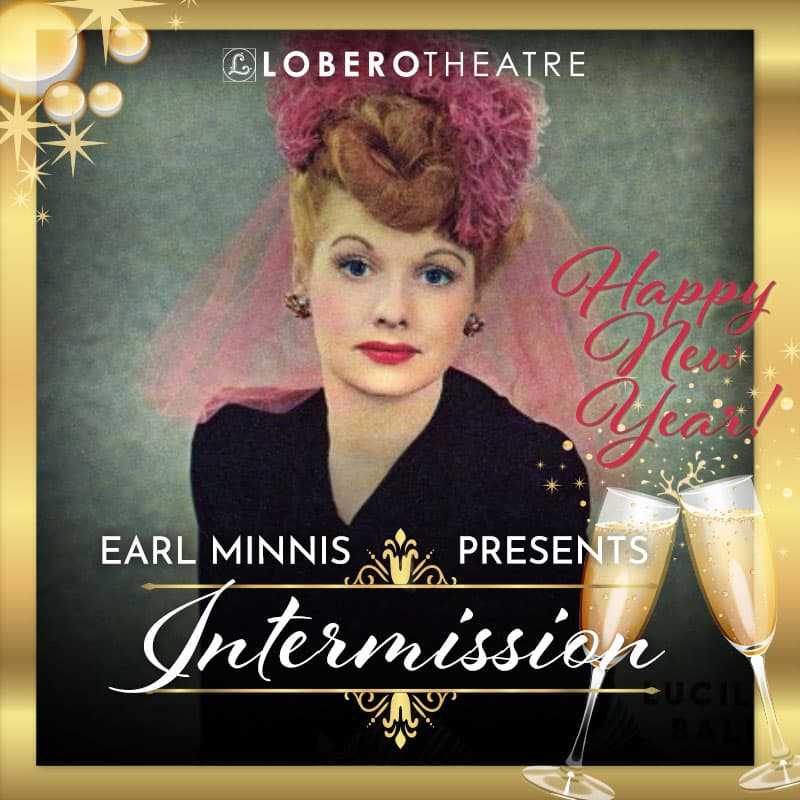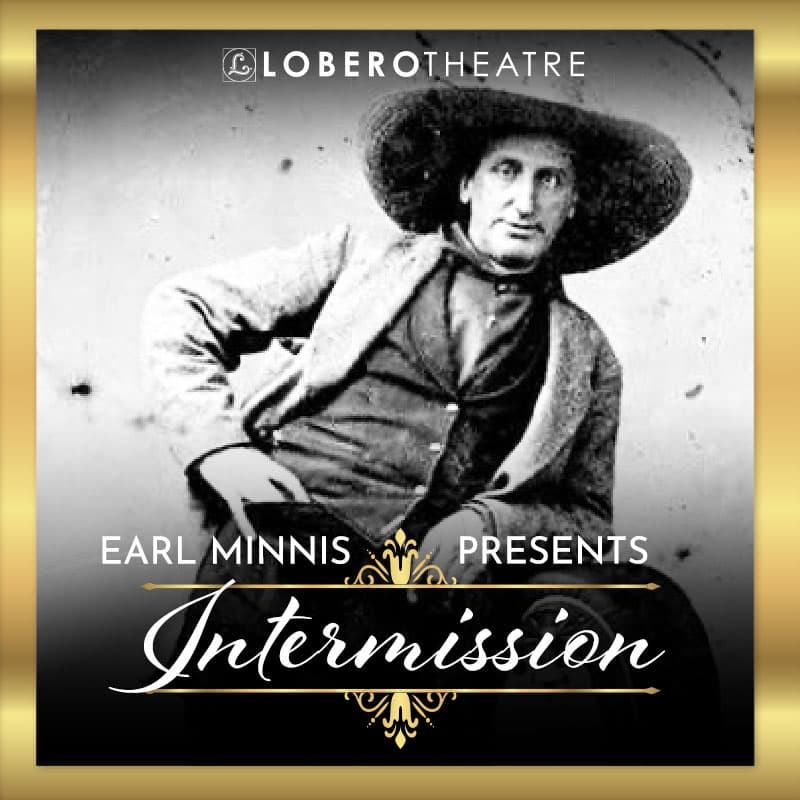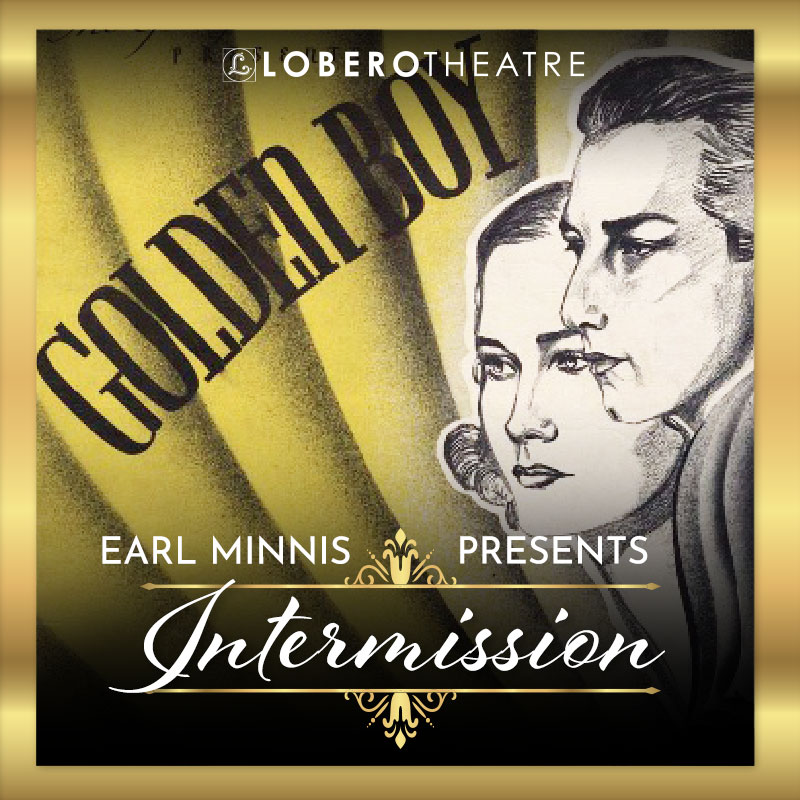On New Year’s Eve 1947 the comic whirlwind that was Lucille Ball took to the Lobero stage in the ambitious comedy-fantasy Dream Girl.
Lucille Ball had begun acting 14 years earlier and had appeared in supporting and even lead roles in a number of Hollywood movies. But quality pictures and stardom had eluded her, and by the age of 36 she had been labeled with the nickname “Queen of the B’s.”
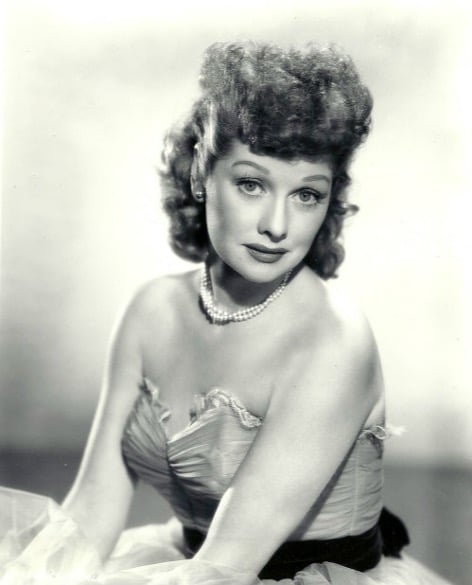
Lucille Ball saw Dream Girl as a chance to showcase her innate comic abilities in front of a live audience, and she opened a 5-month national tour of the play in Princeton, New Jersey in June 1947. The tour was scheduled to wind up with New Year’s Eve and New Year’s Day performances in Santa Barbara, followed by a couple of weeks in Los Angeles.
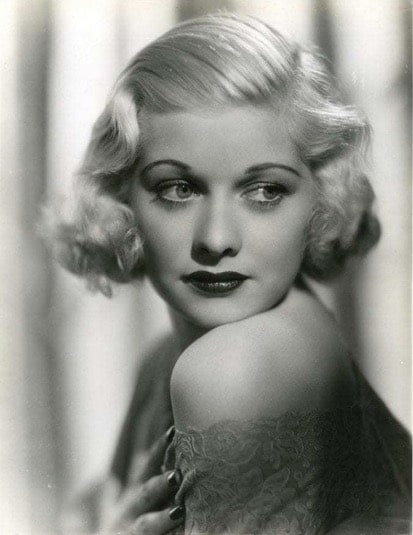
Lucille Désirée Ball was born in 1911 in the small western New York town of Jamestown. Her father died when Lucille was only 3 years old and her mother worked several jobs, so Lucy and her younger brother were raised by her grandparents. When Lucy was 15, her mother enrolled her in the John Murray Anderson School for the Dramatic Arts in New York City, where Bette Davis was a fellow, and star, student. Ball’s drama school experience was a disappointment and only lasted 6 weeks. Ironically, given her legacy as a madcap, extroverted comedienne, Lucy’s drama school instructor wrote Ball’s mother, “Lucy’s wasting her time and mine. She’s too shy and reticent to put her best foot forward.”
A year later, at the age of 16, Lucille decided to try her hand at show business one more time, and first got work in New York as a model at a dress shop, and then as the poster girl for Chesterfield cigarettes. Her big break, and literal ticket to Hollywood, came in 1933 when she was cast in an unbilled role as one of the Goldwyn Girls in Eddie Cantor’s musical comedy Roman Scandals. Throughout the rest of the 30s and into the 1940s Lucille Ball was a contract player with RKO Pictures and then a B-movie star at MGM Studios. In 1940, Lucy married Cuban bandleader Desi Arnaz and settled permanently in Los Angeles.
While Lucy had begun her show business career in film, it hadn’t turned out to be a great fit for her talents. ”I never cared about the movies,” she said later, ”because they cast me wrong.” 1947’s national tour of Dream Girl showcased Lucy’s wacky comedic talents and made her realize she was most comfortable performing in front of a live audience.
Dream Girl was about a young woman whose attempt to run a bookstore was constantly sidetracked by her imaginative and romantic daydreams. The play’s fantasy scenes were tailor-made for Ball’s wit and style, and some critics loved her acting so much they suggested she never return to film. The Los Angeles Times wrote,
“here is a young lady who could, if she would, have a dazzling footlight career…she is, in a sense, wasting her time in the pictures.”
After completing New Year’s Eve and New Year’s Day performances at the Lobero, Dream Girl moved to the Biltmore Theater in Los Angeles where it was scheduled to run for two weeks. But after only a couple of performances, Lucille Ball – and many other members of the cast – came down with Strep throat and the remaining performances of the play were canceled.
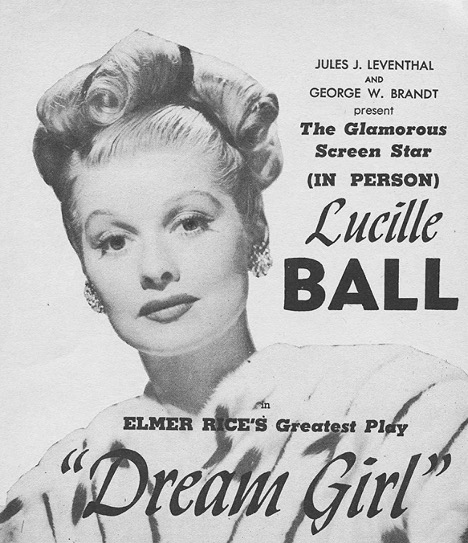
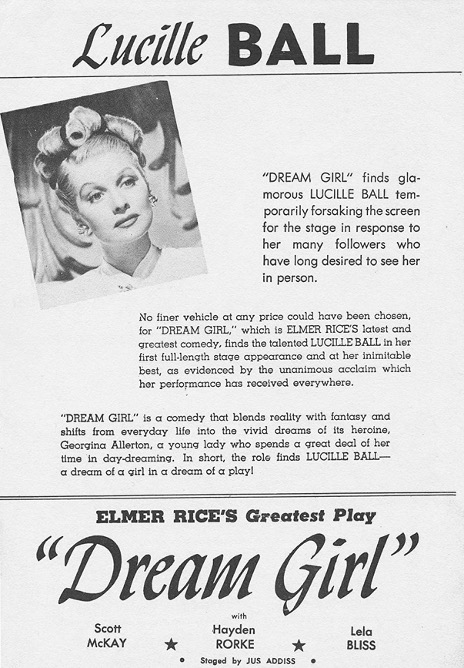
Several months after her Lobero appearance in Dream Girl Lucy was cast in a weekly radio comedy series for CBS Radio. My Favorite Husband was so successful that CBS asked her to develop it for television, which she agreed to do if she could cast her real-life husband as her costar. The couple’s Desilu Productions developed the series, which premiered in 1951 as I Love Lucy.
Based on her positive theater experience with Dream Girl Lucille Ball insisted that I Love Lucy be filmed in front of a live audience, and not use a pre-recorded laugh track. I Love Lucy was the first multi-camera sitcom to be filmed before a live studio audience and a 2012 ABC News/People Magazine poll voted the series as the best-ever TV comedy.
Sources
- https://en.wikipedia.org/wiki/Lucille_Ball
- https://www.nytimes.com/1989/04/27/obituaries/lucille-ball-spirited-doyenne-of-tv-comedies-dies-at-77.html
- https://www.newspapers.com/image/380667324/?terms=%22dream%20girl%22%20%22lucille%20ball%22%201947&match=1
- https://en.wikipedia.org/wiki/I_Love_Lucy
- https://www.amazon.com/Desilu-Story-Lucille-Ball-Arnaz/dp/0062020013
